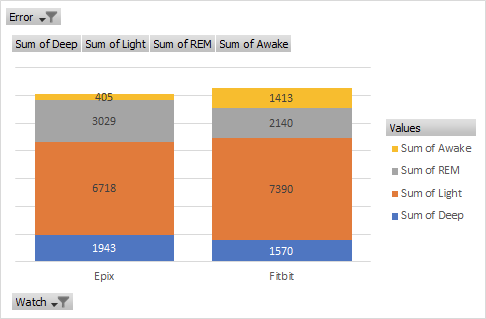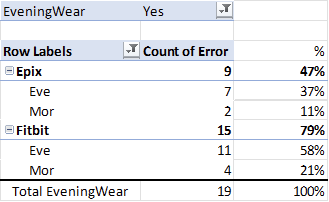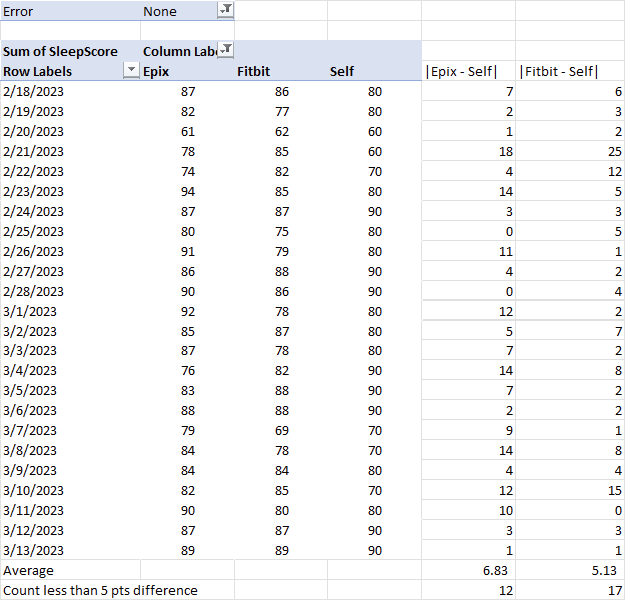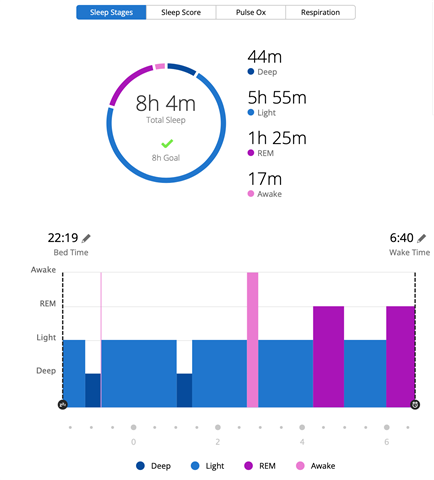TLDR: The Fibit does a better job at measuring awake time during nights, but is worse at avoiding sleep while watching TV. Sleep score are about the same. No need to complement the Epix with Fitbit for better sleep data.
As I am working though sleep therapy (CPAP machine), I have been watching my sleep data closely. I am not happy with the Garmin Epix 2 sleep metrics on 3 main areas:
Fake Nap Problem: the Epix can falsely detect sleep during the day, and overwrite the sleep metrics
TV Problem: the Epix can detect sleep while I am watching TV in the evening prior to going to bed routine. It typically gives me good deep sleep during that time
Awake Problem: the Epix awake time detection during the night is pretty bad. This is the only sleep phase I am aware off. Clearly the Epix doesn't know I am lying in bed waiting to fall back asleep.
To address the TV and Awake problem, I decided to test the Fitbit Charge 5. The device is well rated by others on the detection of sleep phases compared with the Epix.
For the last 3 weeks, I was wearing both devices at night, and recorded the results in the morning, along with my subjective sleep score: 50 (horrible night), 60 (bad night), 70 (ok night), 80 (decent nigh), 90 (great night). This is subjective based on how often I woke up, how long it took me to fall back asleep, and how I felt when waking up.
For 19 nights out of 24, I was wearing the watches while watching TV. For 5 nights, I forgot to put them on and started wearing them as I went to bed.
The Fitbit Charge 5 does a better job at measuring awake time (after correcting for the TV problem)
- the Fitbit records more awake time during the night, subjectively closer to what I am aware of.
- I am suspecting that the Garmin is confusing awake time with REM too often
- Deep and Light sleep are roughly the same, although the Epix gives me more deep sleep time (watching TV deep sleep time has been excluded here).


- Because awake time is not included in sleep time, Garmin Epix slightly overestimates my total sleep time over the test period

- The TV Problem is a wash. It happens more often with the Fitbit, as it wrongly detected the start of sleep while watching TV 58% of the time, vs 37% for Epix. The Fitbit also missed the wake time more often (21% of the nights) than the Epix (11% of the nights). The TV problem doesn't impact the sleep score of the Fibit much, if at all because the TV sleep or missed wake time sleep is actually full of awake time, unlike the Garmin. So I wouldn't need to correct the sleep time with the Fibit is much as I need with the Garmin when the error happens.

- After corrections, the sleep score of the Fitbit is closer to the perceived sleep quality than the Epix, but not in a striking way





